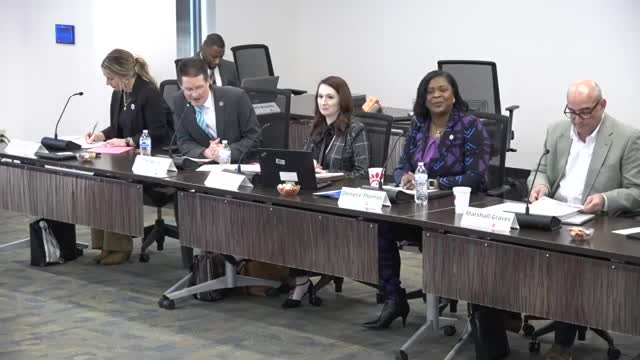Board commits to transparent voting process for eight policy changes
February 28, 2025 | Labor and Workforce Development, Deparments in Office of the Governor, Organizations, Executive, Tennessee
This article was created by AI summarizing key points discussed. AI makes mistakes, so for full details and context, please refer to the video of the full meeting. Please report any errors so we can fix them. Report an error »

In a meeting marked by a commitment to transparency, the Tennessee State Workforce Development Board gathered to address a series of important policy changes. As members settled into their seats, the atmosphere buzzed with anticipation, knowing that the agenda would require multiple votes—eight in total.
The chairperson opened the session by acknowledging the potential for a lengthy voting process, emphasizing that the board's approach was not a reflection of inefficiency but rather a dedication to clarity and openness. “We’re trying to be transparent about every vote,” they stated, highlighting the board's intention to ensure that each policy change was clearly understood and discussed.
In a departure from past practices, where votes might have been grouped together, the board decided to conduct individual roll call votes for each policy. This method, while potentially tedious, was designed to give every member a chance to comment and engage with the specifics of each proposal. The chairperson reassured attendees that this approach was a deliberate choice aimed at fostering a more informed dialogue around workforce development initiatives.
As the meeting progressed, the board members prepared to delve into the details of each policy, setting the stage for a thorough examination of the changes that could shape Tennessee's workforce landscape. The commitment to transparency and engagement was palpable, promising a more inclusive decision-making process that could resonate well beyond the walls of the meeting room.
The chairperson opened the session by acknowledging the potential for a lengthy voting process, emphasizing that the board's approach was not a reflection of inefficiency but rather a dedication to clarity and openness. “We’re trying to be transparent about every vote,” they stated, highlighting the board's intention to ensure that each policy change was clearly understood and discussed.
In a departure from past practices, where votes might have been grouped together, the board decided to conduct individual roll call votes for each policy. This method, while potentially tedious, was designed to give every member a chance to comment and engage with the specifics of each proposal. The chairperson reassured attendees that this approach was a deliberate choice aimed at fostering a more informed dialogue around workforce development initiatives.
As the meeting progressed, the board members prepared to delve into the details of each policy, setting the stage for a thorough examination of the changes that could shape Tennessee's workforce landscape. The commitment to transparency and engagement was palpable, promising a more inclusive decision-making process that could resonate well beyond the walls of the meeting room.
View full meeting
This article is based on a recent meeting—watch the full video and explore the complete transcript for deeper insights into the discussion.
View full meeting
